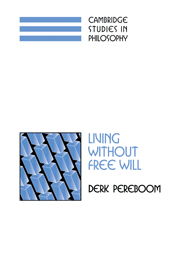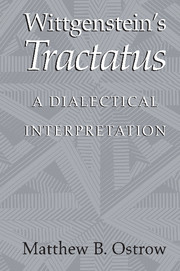Deontic Morality and Control
This book addresses the following dilemma: if determinism is true, no one has control over one's actions. If indeterminism is true, then no one has control over one's actions. But it is morally obligatory, right or wrong, for one to perform some action only if one has control over it. This dilemma can be evaded, because moral obligation is incompatible with determinism but not with indeterminism. Prof. Haji concludes by explaining that if no action is morally obligatory, right, or wrong, then our world would be morally impoverished.
- Addresses the neglected issue of whether determinism or indeterminism is compatible with moral obligation, right or wrong
- Argues that, if determinism is true, then our world would be considerably morally impoverished
- Stands as a good complement to other books in the series dealing with issues of free will
Reviews & endorsements
'Readers interested in recent debates not only in its main field but in virtue ethics, or on the relation of morality to practical reason, will find the work impressively up to date and incisively engaged.' Journal of Moral Philosophy
'rigorous and thought-provoking work, … Haji's arguments are meticulous and intriguing and I found much in the work in which I agreed. … Haji has addressed a problem that has not received sufficient attention. For whilst the literature on control and responsibility is huge, far less has been said about control and deontic morality.' Philosophical Writings
Product details
August 2007Paperback
9780521039185
304 pages
228 × 151 × 16 mm
0.452kg
Available
Table of Contents
- Acknowledgements
- 1. Introduction
- Part I. Determinism and Deontic Morality:
- 2. Obligation and control
- 3. Frankfurt-type cases and deontic control
- 4. Control requirements of deontic anchors: some objections
- 5. Determinism and deontic anchors
- Part II. Indeterminism and Deontic Morality:
- 6. Transition: from determinism to indeterminism
- 7. Robust modest R-libertarianism and luck
- 8. Robust model R-libertarianism and deontic anchors
- Part III. Consequences of Being Deprived of Deontic Anchors:
- 9. The significance of the possibility of being without deontic anchors
- 10. Determinism, deontic anchors and appraisability
- 11. Virtue ethics without metaphysical freedom
- 12. On the connection between morality's dethronement and deontic anchors
- 13. Concluding remarks
- Notes
- Glossary and list of principles
- References
- Index.





